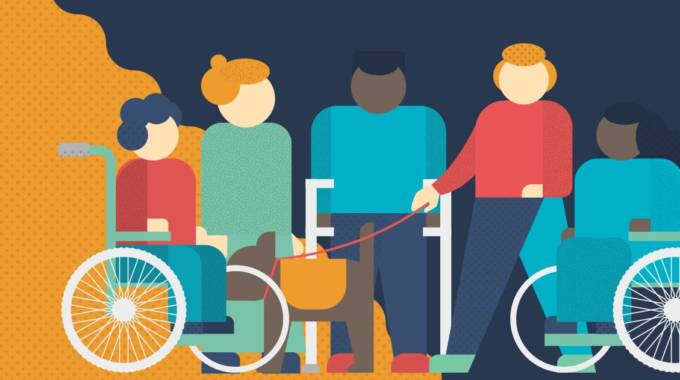
The Sunday Mail

Disability Issues
Dr Christine Peta
THIS week, the nation joins the world in recognising the International Youth Day, which is commemorated every year on August 12.
Thus, in this article I will pay particular attention to youth with disabilities.
The theme for this year’s International Youth Day is “Intergenerational Solidarity: Creating a World for All Ages.”
This theme means that we need to take action across all generations if we are to achieve the Sustainable Development Goals (SDGs), without leaving no one behind. The United Nations (UN) states that the number of youth between the ages of 10 and 24, worldwide, currently stands at 1,8 billion people. This is the largest generation of youth in history.
Approximately 90 percent of the youth live in developing countries, where they constitute a large part of the population.
The UN recognises the number of youth is likely to increase due to large populations in most developing countries, and to medical advancements which promote higher rates of survival and life expectancy after health conditions and injuries that cause disabilities.
In any case, being youthful in itself, is a major contributing factor to disability as young persons are at an increased risk of acquiring disabilities through among other things, road traffic accidents, injuries that may arise from sporting activities, violence and drug abuse.
Nonetheless, compared to youth without disabilities, those with disabilities are among the most marginalised and poorest groups in the world. Most young persons with disabilities experience isolation, exclusion and all forms of abuse and limited access to educational and economic opportunities among others.
The National Disability Policy of Zimbabwe (NDPZ), which is informed primarily by the United Nations Convention on the Rights of Persons with Disabilities (CRPD) and with the 2030 Agenda for Sustainable Development, directs the inclusion of youth with disabilities in all facets of life, including in education and health.
The NDPZ directs educational institutions at all levels to ensure accessible and appropriate facilities for students with disabilities.
Such an approach helps us to ensure that by the time they reach adolescence, youth with disabilities are not at a high risk of being illiterate. Creating poverty-reduction programmes that are targeted at persons with disabilities including youth with disabilities and their families, is also key.
If we reflect on the theme for this year’s International Youth Day, we realise that there is a need for all of us to foster collaboration and unity across all age groups, and guard against ageism which presents a lot of challenges.
The World Health Organisation defines ageism as “the stereotypes (how we think), prejudice (how we feel) and discrimination (how we act) directed towards others or oneself, based on age”.
There is a need to eliminate barriers in various spheres of the lives of young persons including the lives of young persons with disabilities in areas such as employment, political participation, health and justice.
A life course approach that is fair for all ages is likely to make a positive difference including in the lives of youth with disabilities.
Disability inclusive intergenerational interventions will enable us to promote social connectedness and strengthen intergenerational solidarity.
The UN states that “fostering intergenerational solidarity is necessary if we are to ensure an inclusive and sustainable recovery from the Covid-19 pandemic.”
As we sail across this third year of the Covid-19 pandemic, it is important for all of us to identify and address age-related barriers to “building back better” in a manner that pulls together the knowledge and strengths of all generations, without leaving youth with disabilities behind.
There is a need for youth programmes in all sectors to address issues that are unique to youth with disabilities, and to include youth with disabilities in the membership of youth organisations as well as to seek out their participation in all initiatives.
There is a need for all of us to join hands in creating self-development space for youth with disabilities as well as creating opportunities for them to contribute to the development of the nation.
Yes! youth of today are more connected to each other, but we need to ensure that as young people propose innovative solutions, drive social progress, and contribute to the resilience of their communities, youth with disabilities are also included.
In any case, youth with disabilities are also agents of change, they can mobilise to advance the SDGs, and improve the well-being of people as well as the health of the planet. We need to undertake research on youths with disabilities, so that we draw findings that inform policy and practice.
Dr Christine Peta is a disability, policy, international development and research expert who is the National Director of Disability Affairs in Zimbabwe. She can be contacted on: [email protected]



